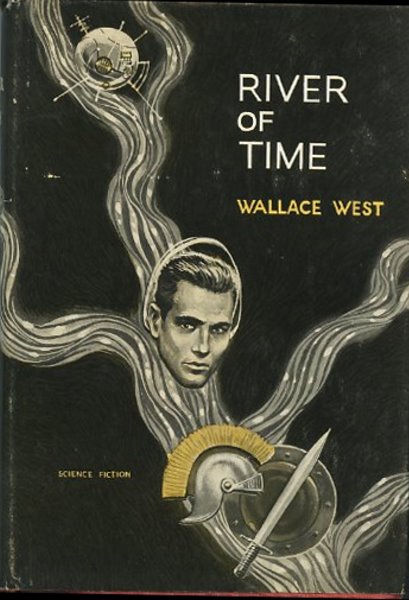
by Gideon Marcus
Time travel. It's been a fixture of science fiction ever since H.G. Wells wrote the seminal work, The Time Machine. And what could be a more seductive topic? Instead of being confined to our plodding day-by-day, one-way march to the future, one could take great leaps in any direction — forward and back.
Wells' book dealt only with trips to the far future, a feat that is both more technologically feasibly and less fraught with challenges than journeys to the past. After all, it would just take a sophisticated suspended animation system and a timer, and one could sleep one's way to a different time. Going backwards requires a direct confrontation with a host of physical laws.
Moreover, any trip you take to the past brings you face to face with your own history. Your very presence inserts a variable that wasn't there before, one with endless possibilities for destroying your present. Take the classic Grandfather Paradox: You go back in time and kill your grandfather. before he has children. How do you still exist? And if you don't exist, how do you kill your grandfather?
Some books take the premise seriously. John Brunner's Times without Number, for instance, has all the time jaunts causing an increasingly unstable timeline, ending in the un-invention of time travel, itself! Such would seem the inevitable fate of any universe in which time travel is possible.

Wallace West's new book, River of Time takes a different, more fanciful tack. Instead of needing a machine to sail the time stream, instead, the past and present have something of a symbiotic relationship. When times are troubled, a gateway to the past is formed to a similar crisis in the past. Resolution of one fixes the other.
So it is that Ralph Graves, an overweight, under-achieving 23 year old with a Master's in Physics and a lowly news-writing gig, ends up driving his car into the Revolutionary War. The 1964 he left was in the midst of a Cold War on the verge of heating up. This dire situation is mirrored in 18th Century America, where the rebels are in dire straits. Returning to the present, Graves channels Paine, writing a stemwinder of a speech that gets picked up and rebroadcast across the country, raising national morale. The result: supplies reach the ragged colonials in time for them to withstand the onslaught of the Redcoats, and the Revolution is saved.
This is just prelude to the novel's main story-line, one that teams Ralph with thin and nervous chemist, Larry Adams, all-American fighter jock and engineer, Hugh Woltman, and temperamentally stable psychologist, Mary Peale. Just as tensions snap between East and West and the bombs begin to fall, the mother of all time rents appears sending Ralph and his group back to a crisis of similarly great proportion: just after the assassination of Julius Caesar. Can this misplaced modern squad save the Roman Republic and, thereby, the 20th Century?
First things first: River of time is a fun book, and if its premise be fantastic, so much the better. West has a deft, light style that paints complete pictures with enviable economy of words. The book moves. The first third of the book comprises two enjoyable self-contained bits that were published as short stories in 1950 and 1954. They're a lot of fun, and the second piece is remarkable in that it conceives an effect of time travel I've not seen before or since.
As good as the earlier sections are, the book really shines when present meets past on the steps of the Senate. Our heroes cleverly parlay their collection of parcels from 1965 into a better order for the Mediterranean in a rewarding romp. I particularly loved the abundance of strong female characters: level-headed Mary; Publia, canny wife of Cicero; and Cleopatra, Queen of the Nile. All are vital to the success of the enterprise.
Alas, while I would love to give my highest rating to West's latest, I'm afraid there's a component that mars the package. It is demonstrated early on that Mary Peale is highly susceptible to suggestion, and even though she does many important and vital things throughout the story, much of what she does, and her ultimate fate, are influenced by factors beyond her control. I found her lack of agency disturbing.
To sum up, River of Time is a quick and enjoyable read, a worthy addition to the ever-growing library of time-travel related stories. Four stars.








